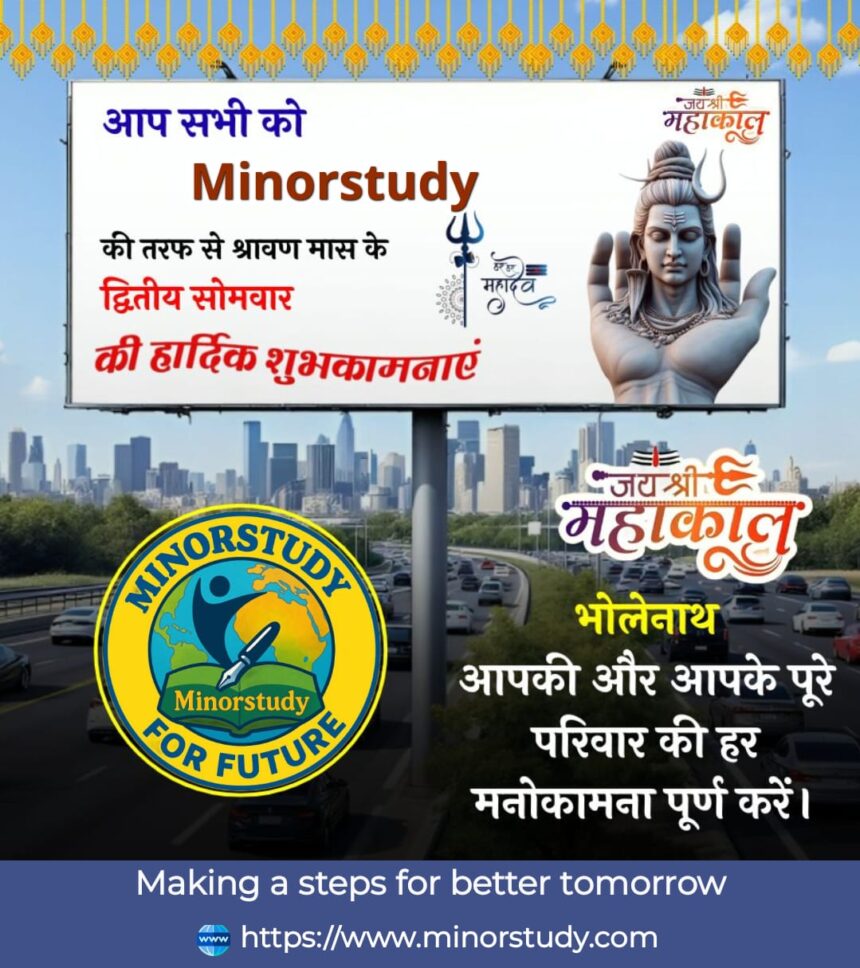🔱 11 Unstoppable Truths About Jai Shree Mahakal That Will Deeply Transform Your Life
“Jai Shree Mahakal” – a divine chant that transcends time, space, and even fear. This powerful invocation is not just a greeting or salutation—it is a vibrational expression of surrender, strength, and eternal faith in Lord Mahakal, the fierce and timeless form of Lord Shiva.
- 🙏 What Does “Jai Shree Mahakal” Mean?
- 🕉️ History of Jai Shree Mahakal
- 🗓️ Timeline of Mahakal’s Worship and Chant Popularity
- 🌟 11 Unstoppable Facts About Jai Shree Mahakal
- 🤔 FAQs About Jai Shree Mahakal
- Q1: Who can chant Jai Shree Mahakal?
- Q2: Is it mandatory to visit Ujjain to experience Mahakal?
- Q3: What happens when I chant “Jai Shree Mahakal” regularly?
- Q4: Is this chant for specific occasions?
- Q5: Is Mahakal different from Shiva?
- 🔆 Spiritual and Societal Significance
- 🙌 Observances & Celebrations
- 🕉 Wishing With Jai Shree Mahakal
- 🧭 Important Points Recap
- 💡 Daily Life Impact of Chanting “Jai Shree Mahakal”
- 🕊 Conclusion: Chant That Breaks Time, Builds Soul
But have you ever wondered about the history, significance, spiritual facts, and daily life impact of saying “Jai Shree Mahakal”?
In this heartfelt and enlightening article, we explore Mahakal’s timeless aura, backed by history, timelines, devotional rituals, FAQs, facts, and the deeply human emotion behind one of the most iconic chants in Hindu spirituality.
Let’s dive into the unshakable truths of Mahakal—the God who lives beyond life and death.
🙏 What Does “Jai Shree Mahakal” Mean?
“Jai Shree Mahakal” translates to “Victory to the Supreme Lord of Time and Death”, referring to Mahakal, a form of Lord Shiva who governs over Kaal (Time) itself.
“Jai” = Victory / Glory
“Shree” = Respected / Divine
“Mahakal” = Great (Maha) + Time / Death (Kaal)
By uttering this phrase, devotees invoke the protector of dharma, the destroyer of evil, and the giver of moksha (liberation).
🕉️ History of Jai Shree Mahakal
The worship of Mahakal dates back thousands of years and is deeply tied to the ancient city of Ujjain—home to the Mahakaleshwar Jyotirlinga, one of the 12 Jyotirlingas of India.
Mythological Roots:
According to the Shiv Purana, Lord Shiva manifested as Mahakal to destroy a powerful demon who was tormenting devotees in Ujjain.
After the victory, the devotees hailed him as Mahakal, the Lord beyond time, who can annihilate even the most potent evil.
This event seeded the timeless chant: “Jai Shree Mahakal”—a salute to Shiva’s invincible and protective form.
🗓️ Timeline of Mahakal’s Worship and Chant Popularity
| Time Period | Event |
|---|---|
| Vedic Period (~1500 BCE) | Mentions of Rudra (precursor of Shiva) in Rigveda |
| Puranic Era (~400 CE) | Mahakal appears in Shiv Purana, Skanda Purana |
| 9th Century | Mahakaleshwar Temple construction in Ujjain |
| 13th Century | Destruction and restoration during invasions |
| Modern Times | Chant of “Jai Shree Mahakal” grows through saints, social media, and pilgrimages |
🌟 11 Unstoppable Facts About Jai Shree Mahakal
🔥 Lord Mahakal Is Beyond Birth and Death
He is the only deity worshipped as time itself, not within it.🕍 Ujjain’s Mahakaleshwar Jyotirlinga Is Self-Manifested
This Jyotirlinga is Swayambhu (self-born), unlike others that were established ritually.⏳ Mahakal Destroys Kaal (Time) for Devotees
Chanting his name is said to nullify karmic cycles and bring moksha.🕯 The Bhasma Aarti Ritual Is Unique to Mahakal
It’s the only temple where Shiva is worshipped with ashes, symbolizing death’s end and life’s beginning.📿 The Chant Energizes and Heals
“Jai Shree Mahakal” is considered vibrationally powerful, calming the mind and empowering the spirit.🛡 Mahakal Protects Against Fear and Negativity
Devotees believe he watches over them at all times—especially when life is uncertain.🌍 He Is Revered Across Sects
From Shaivites to Shaktas to even atheists in spiritual crisis—Mahakal is a universal protector.🧘♂️ Great Saints Like Adi Shankaracharya Visited Mahakal
He praised Mahakaleshwar as the pillar of light and dharma.🏞 Ujjain Is a Powerful Spiritual Vortex
The chant resonates more profoundly at Mahakal’s temple, where energy is said to shift time perception.🗡 Warriors and Kings Chanted It for Victory
Rajput warriors and sages have used this chant before entering battle or facing danger.💬 Modern Youth Are Reviving This Chant with Pride
Thanks to TV serials, Mahakal Yatras, and devotion movements, “Jai Shree Mahakal” is trending once again—from temples to Instagram reels.
🤔 FAQs About Jai Shree Mahakal
Q1: Who can chant Jai Shree Mahakal?
Anyone, regardless of religion, caste, or gender. Lord Shiva accepts devotion from all beings.
Q2: Is it mandatory to visit Ujjain to experience Mahakal?
Not at all. Chanting with pure devotion from anywhere invites Mahakal’s grace.
Q3: What happens when I chant “Jai Shree Mahakal” regularly?
You develop fearlessness, mental stability, and feel spiritually protected.
Q4: Is this chant for specific occasions?
While it’s popular during Maha Shivratri, Mondays, and Kartik Maas, many chant it daily.
Q5: Is Mahakal different from Shiva?
Mahakal is a form of Shiva—his most fierce and timeless version.
🔆 Spiritual and Societal Significance
Encourages devotion over fear
Spreads cultural pride, especially among youth
Unites people from all walks of life under a shared divine belief
Reminds us of impermanence, helping detach from ego and materialism
🙌 Observances & Celebrations
Mahakaleshwar Temple in Ujjain witnesses millions of devotees on Mahashivratri
Bhasma Aarti performed daily before dawn
Mahakal’s name is invoked during Rudrabhishek, Shivratri, Pradosh Vrat, and during hard times
🕉 Wishing With Jai Shree Mahakal
🌺 May Lord Mahakal bless you with strength to face time, wisdom to walk the right path, and peace beyond imagination. Jai Shree Mahakal! 🙏
Whether it’s a new journey, a tough phase, or simply a moment of devotion—Jai Shree Mahakal is a wish, a mantra, and a cosmic prayer in one.
🧭 Important Points Recap
Mahakal = Lord of Time and Death
Chant originated from Ujjain and ancient scriptures
Empowers, heals, and liberates
Suitable for all ages, backgrounds, and occasions
Deeply rooted in Indian cultural and spiritual identity
💡 Daily Life Impact of Chanting “Jai Shree Mahakal”
Builds mental resilience and spiritual grounding
Offers solace during grief, confusion, or transitions
Encourages fearless living and positive thinking
Inspires discipline through spiritual practice
Promotes inner silence and reflection in chaotic times
🕊 Conclusion: Chant That Breaks Time, Builds Soul
Jai Shree Mahakal isn’t just a phrase—it’s a lifeline, a shield, a celebration, and a surrender.
In a world dominated by anxiety and speed, invoking Mahakal is like pressing pause on fear and play on peace. His devotees are not afraid of time; they walk with it, ruled by no one but the Lord of Time Himself.
So today, as you breathe and live another moment, close your eyes, and whisper:
“Jai Shree Mahakal”
…and let your soul be free.








